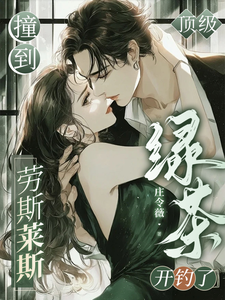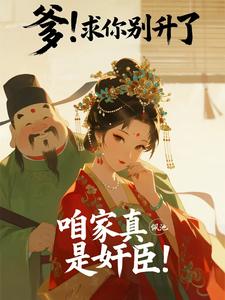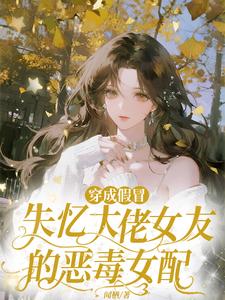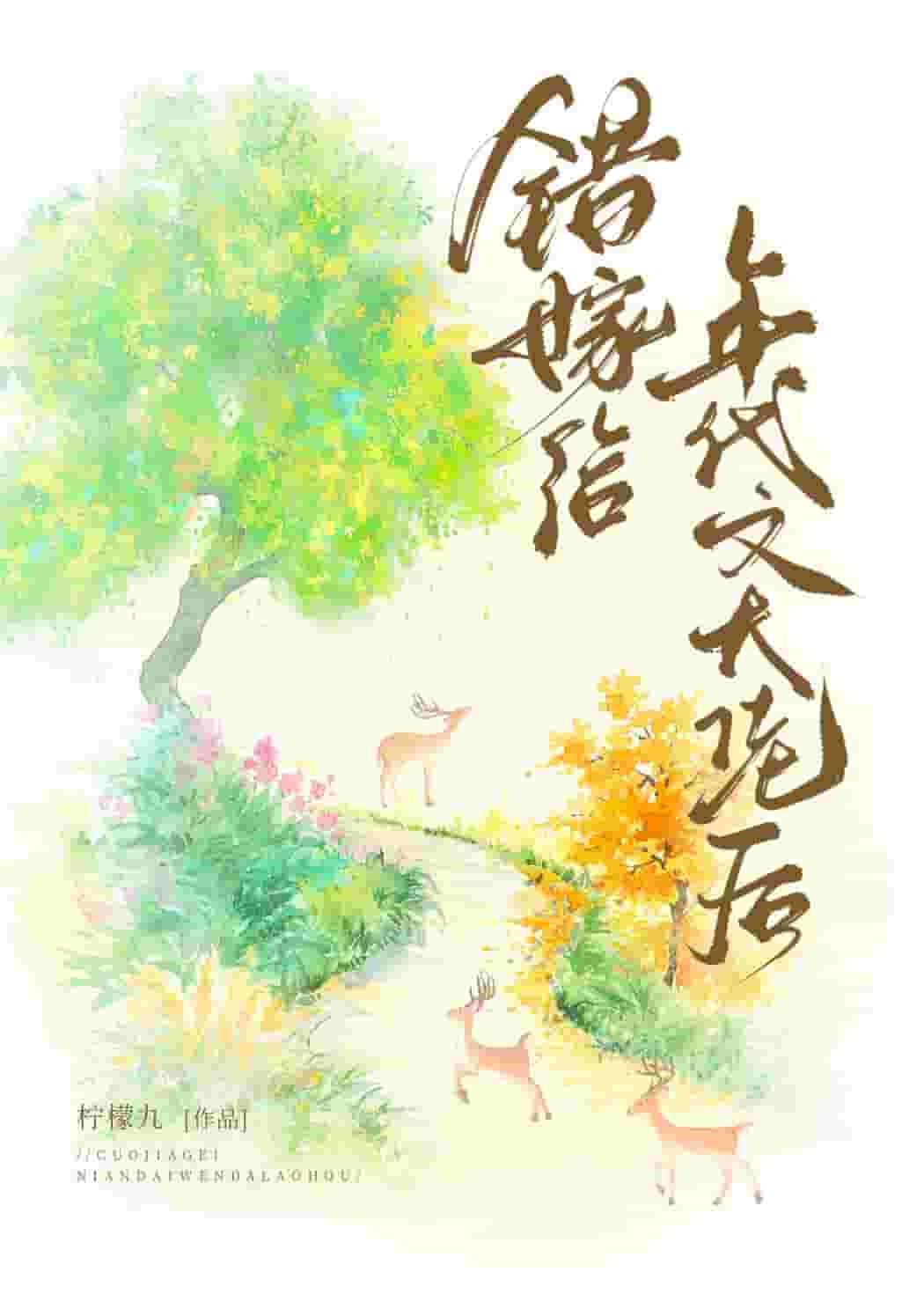Liang Qian arrived during the Winter Solstice.
There’s a saying that "the Winter Solstice is as grand as the New Year," and this held true even in the Song Dynasty. It was a festival comparable to the New Year, where the emperor would lead his officials to the southern suburbs to offer sacrifices to heaven, praying for national peace, favorable weather, and bountiful harvests. Ordinary households would also worship their ancestors, gather for reunion meals, and visit friends and relatives.
However, during this time, neither tangyuan (glutinous rice balls) nor dumplings were traditionally eaten for the solstice.
In the Song Dynasty, the most festive food for the Winter Solstice was actually wonton—thin-skinned dumplings served in broth. Though back then, the distinction between wontons and dumplings wasn’t entirely clear, and the two were often confused.
Fu Xing, whom Shen Miao had repurposed to roast duck, happened to be skilled at making these and was eager to show off his craft.
The night before the solstice, Shen Miao hung a "Closed for Winter Solstice" sign outside. As this was a day for family reunions, not only did Ji Brother get a day off, but Shen Miao also received word from Uncle Shen, instructing the three of them to join in paying respects to Father Shen, Mother Shen, and the Shen Family Grandparents.
The graves of Shen Miao’s parents and grandparents were located on a piece of ancestral land owned by Uncle Shen, on a small hill called Zhua'er Yutou outside the city. The feng shui was said to be good, though the location was somewhat lively—right next to the "Luoze Garden," a public cemetery established by the Song government to bury the remains of travelers who died far from home.
The Shen family had moved to Bianjing (modern-day Kaifeng) during the generation of Shen Miao’s grandfather. Their ancestral home was said to be in Kuizhou (present-day Fengjie, Chongqing), a place of towering mountains and winding rivers. In his lifetime, Shen Miao’s grandfather never spoke of his distant relatives nor returned to visit. After making his fortune, he deliberately bought burial land next to the Luoze Garden, symbolizing his determination to firmly root this branch of the Shen family in Bianjing.
Thus, the Shen family had no ancestral hall or detailed family records—just a family plot near the city’s public cemetery. This made their rituals simpler than others’, and upkeep was easier.
Uncle Shen’s family usually maintained the graves. Rumor had it he had even purchased a servant to guard the hill, tasked with sweeping, weeding, and cleaning the memorial tablets. During major festivals, incense and offerings were made to ensure the deceased wouldn’t go hungry.
But the Winter Solstice was different—family members couldn’t be absent. A few days prior, Uncle Shen had sent a servant to inform Shen Miao of the ceremony’s timing, instructing her and her siblings to arrive at his house before 7 a.m. so the two families could depart together without missing the auspicious hour.
He also reminded Shen Miao to prepare her own wine, meat, fruits, vegetables, incense, and paper money.
Shen Miao naturally agreed.
In Eldest Sister Shen’s memory, before she married, she had visited the Shen Family Grandparents every Winter Solstice and the fifth day of the Lunar New Year. Qingming Festival, by contrast, was considered "lacking in yang energy," so the Shen family only worshipped the local earth god then—a slight difference from the later tradition of tomb-sweeping during Qingming.
Since they were heading out of the city to visit the graves, Shen Miao woke especially early on the solstice. When she opened her eyes, the sky outside was still pitch black, and the heated brick bed and blankets were so warm that she lay there staring at the darkness for a while before mustering the courage to get dressed.
She cautiously extended two fingers from under the quilt to test the icy air outside, then swiftly yanked all her clothes into the warmth of the bedding.
Only after the garments had been thoroughly warmed by the heated bed did she quickly dress beneath the still-cozy covers.
When she pushed open the door, she spotted frost on the roof tiles. A thin layer of ice had formed over the water vat in the courtyard, cracking into floating fragments when poked with a stick.
The house was still quiet, with both adults and children asleep.
Shen Miao exhaled a misty breath and headed to the kitchen.
The kitchen door was slightly ajar, a dim yellow glow spilling through the crack. Inside, Fu Xing was already busy simmering broth and wrapping wontons by the stove.
"You’re up, Madam Shen. Come warm yourself by the fire," he said, turning with a smile, his hands still dusted with flour from rolling out wonton wrappers. "Just wait a bit—it’ll be ready soon."
"When did you get up? Why not sleep longer?" Shen Miao walked over, sat on a low stool, and poked at the embers in the stove with a pair of tongs. "Let me help you today."
"Not long ago, really," Fu Xing replied with a sheepish grin, adjusting the pink-and-white floral apron tied around his waist. His arms were covered in matching fabric sleeves, both made by Tao.
Shen Miao had once stashed away a piece of floral-patterned coarse cloth, originally bought to make clothes for Sister Xiang, but it had been forgotten at the bottom of a chest. When she rediscovered it while packing away summer clothes, the fabric was already moldy and riddled with moth holes—infuriatingly ruined.
Unwilling to waste it, Tao had cut it into aprons and sleeves for everyone.
Thus, Fu Xing was dressed rather… vibrantly today.
Aside from the floral apron, he wore a thick, padded new cotton robe for the holiday. Though the robe itself was plain brown, Tao had embroidered longevity motifs at the cuffs and collar, playing on the "fu" (fortune) in his name.
As he wrapped wontons and rolled dough, Fu Xing chatted with Shen Miao by the fire.
"My former employer wasn’t highly ranked, but the household was particular about food. The old mistress disliked jiaozi, saying the wrappers were too thick—no matter how well the filling was seasoned, it couldn’t compare to wontons. She taught me to make them: the skins must be rolled paper-thin, translucent when held to light, with the filling visible through the wrapper. The meat filling had to be meticulously cleaned of sinew, leaving only tender, fish-like mince, then pounded with a wine bottle until it clung stubbornly to the base. The broth had to be simmered with old hens and pork bones—only then would she nod in approval."
Shen Miao’s mouth watered just hearing about it.
But her grandfather had taught her a simpler method: boiling water as the base, seasoning by instinct—a handful of seaweed here, dried shrimp there, a scoop of scallion oil, a pinch of salt and MSG for umami. The wontons were boiled and ladled into bowls, the hot broth poured over. If pre-made and frozen, the whole process took barely five minutes.
Rustic as it seemed, the taste was surprisingly delicious—clear, bright, and savory. She loved it.
Fu Xing’s former employer’s method was far more refined, hence the early start to prepare the broth.
By now, Fu Xing had filled a bamboo tray with plump little wontons, each with a rounded belly and trailing delicate wrappers, swimming in the pot like white goldfish with long tails.
He stood to stir the broth with long chopsticks, preventing the wontons from sticking, and casually mentioned recent Bianjing gossip: "Madam, I didn’t see any imperial guards escorting prisoners yesterday. Seems the cases are wrapping up."
Days earlier, he’d witnessed the Xue family prisoners being transported in cages. Having seen his former employer’s family fall and be exiled, he’d felt a pang watching the procession of prison carts rumble past.
Until he stood for a quarter of an hour watching the crowd by the roadside, his feet aching from the endless line of mule carts laden with confiscated boxes of the Guo family's property and farmland—so many that even after all this time, the procession still hadn't reached its end—his faint sense of pity vanished once more.
He cursed himself inwardly: What business does a mere servant, sold for just twelve taels by a broker, have worrying about such matters?
So he stopped watching and turned back.
Shen Miao nodded in agreement. Since the streets had quieted down these past two days, it seemed the authorities had finally finished their confiscation.
However, the Xie and Feng families appeared untouched by this purge. Over the past few days, Shen Miao had also learned that the imperial court had listed over fifty major crimes committed by seven prominent scholar-official clans, with the Guo family as the prime example. Members of these clans serving in office were all dismissed; those convicted of crimes were exiled three thousand li, forbidden from returning to the capital for life. Some, deemed ringleaders, were even barred from imperial examinations for three generations. The edict had been publicly proclaimed, effectively branding these clans with eternal disgrace.
Most of the Guo family's members and servants—those who had oppressed the common people, poisoned wells in water disputes, and driven others to their deaths—were sentenced to exile in Lingnan. Meanwhile, the Xue family's offenders, guilty of similar crimes, were sent to northern border regions like Youzhou, Mozhou, and Yingzhou.
Rumor had it that those exiled to Lingnan were forced to work as boat trackers in shipyards, while those sent north were conscripted to rebuild the Great Wall.
As for why they were divided between the two extremes, Fu Xing seemed quite knowledgeable: "The Guo family's ancestral home must be in the north, so they're sent as far south as possible. The Xue family, on the other hand, likely hails from the south, hence their exile to the north. My former master's family was dealt with the same way."
The logic behind the exile assignments was surprisingly scientific—after all, sending northerners north or southerners south would hardly feel like punishment. Shen Miao nodded, then suddenly remembered Fu Xing's former master and exclaimed in surprise, "Your former master loved chicken and dumplings so much, yet they weren’t southerners?"
"No, their ancestral home was in Dezhou, Jingdonglu. Everyone in Dezhou loves chicken. As for dumplings, the name evolved from 'jiaozi,' and it’s not originally southern cuisine either." Fu Xing scratched his head, puzzled.
His words jogged Shen Miao’s memory. Before her transmigration, she had always assumed dumplings were a product of southern water towns. But later, while discussing culinary history with her grandfather, he mentioned that many so-called "southern" dishes actually spread and evolved in the south after the mass migration of northern aristocrats during the Eastern Jin Dynasty.
There were many theories about the origins of dumplings.
Some claimed they were tied to the Han people’s hatred of the Xiongnu. Legend had it that two Xiongnu chieftains, Hun and Tun, were notorious for their atrocities. The Han border people, seething with rage, wrapped minced meat into horn-shaped parcels, naming them "huntun" (dumplings) after the two villains—symbolically devouring them in revenge. But this tale seemed far-fetched.
By the Tang Dynasty, dumplings were still called "guduo," and ancient pronunciations bore little resemblance to modern ones. Shen Miao eventually dismissed the story as a fanciful folktale.
Others argued that dumplings dated back to the Spring and Autumn period.
One thing was certain: after living in the Song Dynasty for so long, she’d seen how deeply the people adored stuffed dough dishes like dumplings. The streets were teeming with dumpling vendors.
Soon, the dumplings floated to the surface of the boiling water. Fu Xing scooped them out with a bamboo strainer, serving Shen Miao a bowl first.
"Lady Shen, try these first. I’ll cook fresh ones when Ji Brother and Sister Xiang wake up. The wrappers are too thin—if left soaking too long, they’ll turn into mush."
Shen Miao took the bowl and sipped the broth.
The soup was rich with the aroma of chicken, its color a translucent creamy yellow, dotted with golden oil droplets. It was clear yet full-bodied, as if all the essence of the dumplings had seeped into the broth.
The dumpling itself was silky-skinned, the filling springy, almost like a meatball. Fu Xing hadn’t lied when he boasted of his dumpling-making skills to the broker.
Between spoonfuls of dumplings and sips of soup, Shen Miao finished the bowl in no time.
"Delicious! The broth is savory, and the filling even more so. You didn’t just use pork—there’s some chicken mixed in, right?" she praised.
Fu Xing’s eyes widened. "Lady Shen’s palate is sharp! I only added a pinch, yet you noticed."
"Chicken makes the filling tender and lighter than pure pork," Shen Miao explained. Plus, chicken’s bounce was superior—only with its addition could the filling achieve that meatball-like texture.
Fu Xing then brought up chicken-and-mushroom dumplings, praising how the earthy flavor of shiitake paired perfectly with chicken.
Absolutely—shiitakes were versatile!
Just as Shen Miao was about to dive deeper into dumpling talk with Fu Xing, the courtyard gate rattled with knocking. She told Fu Xing to keep wrapping while she wrapped a scarf around her neck, donned a fur-lined hat, and went to answer.
She expected Aunt Gu returning Qilin—she’d misjudged the cat earlier. Qilin was a nimble chonker! Scaling walls and hunting mice with ease. According to Aunt Gu, Qilin had caught three mice in just a few days, proudly presenting them before batting their tails and finishing them off.
Impressed, Aunt Gu had rewarded Qilin with meat twice. The cat now patrolled the Gu residence with gusto, determined to exterminate the entire rodent family.
Shen Miao mused that Qilin, young as he was, had already secured employment—truly a Shen family cat. But when she opened the door, no cat was in sight. Instead, standing in the pale winter light was the slightly plump, slightly stooped, gray-haired Liang Qian.
Though Shen Miao vividly remembered the five-tael silver ingot from the imperial household, she hurriedly welcomed the esteemed guest inside, seating him in the sheltered corridor. She insisted Fu Xing prepare another bowl of dumplings: "Eunuch Liang, what brings you here? It’s freezing, and so early—you must not have eaten yet. Have some soup to warm up."
"Lady Shen, there’s no need for trouble. This servant must return to the palace shortly," Liang Qian demurred, though the aroma of chicken broth had already reached him. He accepted the rustic hand-molded clay bowl with a smile, took a sip, and his eyes lit up.
Well, well. Shen’s establishment not only excelled at roast duck but also dumpling soup. Liang Qian silently devoured the bowl, warmth flooding his chest. No wonder people said a hot bowl in winter outdid any brazier.
Shen Miao fetched a teapot and cup, brewing a light tea for Liang Qian to cleanse his palate.
"Thank you for your hospitality, Lady Shen. Eating dumplings for good fortune on the winter solstice—who’d have thought this servant would enjoy yours this year." His expression relaxed as they exchanged pleasantries. Noticing the sky lightening, he hastened to state his business:
"Madam Shen must have heard the rumors these past few days—the Emperor has confiscated properties from many prominent families. These aristocratic clans, with their vast estates and thousands of clan members, have long concealed numerous illegal activities. The Emperor ordered thorough investigations, both overt and covert, and has now succeeded in dismantling them in one sweep. Many of their hidden lands, seized from commoners, have now been reclaimed by the state."
"The Emperor is fond of Madam Shen's roast duck and has also heard of her interest in raising ducks. Thus, he sent this servant to inquire—would Madam Shen be interested in a prime piece of land by the outskirts of the city? It includes a pond and was originally a hunting ground of the Feng family, who voluntarily surrendered it as part of their hidden properties."
Shen Miao was instantly thrilled. The Emperor was offering her land! So this was why he had only given her five taels before—as the ruler of a nation, how could he be so stingy? She nodded eagerly. "Interested, very interested! Is His Majesty truly gifting me these ten acres of land along with the large pond?"
Liang Qian quickly waved his hands, correcting her misunderstanding. "His Majesty's intention is that this land, with its abundant water supply and proximity to the city, is most suitable for raising ducks. Rather than letting others buy it for fish or shellfish farming, it would be more fitting to lease it to Madam Shen for duck breeding."
He paused before adding, "The Emperor admires Madam Shen and is thus willing to sell the land at thirty percent below market price. Additionally, once the canal thaws in spring and shipping resumes, many barges will travel between Bianjing and Jinling. His Majesty has also arranged for the transport officials to bring Jinling ducklings to Bianjing for Madam Shen free of charge—though the cost of the ducklings themselves will still be her responsibility."
Shen Miao fell silent for a moment before lifting her gaze to Liang Qian.
Liang Qian spoke matter-of-factly, his expression earnest, as if nothing about this proposal struck him as odd. He even smiled warmly at her.
"How much would it cost, thirty percent below market price?" Shen Miao quickly abandoned her earlier illusions about the Emperor's generosity. By now, she was almost accustomed to his frugal tendencies.
Still, she had planned to buy land anyway, and a discount was always welcome.
"Prime land on the outskirts of Bianjing typically sells for eighty strings of cash per acre. According to His Majesty's offer, Madam Shen need only pay fifty-six strings per acre, with the pond included at no extra cost—a most advantageous deal."
Liang Qian had already calculated this with the Emperor in the palace and now relayed it smoothly to Shen Miao.
After some thought, Shen Miao agreed it was indeed a bargain. Normally, resold land with a pond would charge extra for the water feature. Moreover, the Emperor's offer to cover shipping for the ducklings was even more appealing than the discounted price. Transporting them via official barges would ensure higher survival rates than if she arranged it herself.
"Very well, I accept the terms as you've stated," Shen Miao agreed readily. Her savings now allowed her to comfortably spare eight hundred strings for the purchase—much of it thanks to the Feng family's extravagant spending. They had seemed determined to throw money around as if fearing they wouldn’t live to spend it all.
Aside from paying her in gold for every banquet she hosted, they had also deposited six hundred grilled fish and over five hundred roast ducks with her—even inquiring whether her "VIP card" could store gold and silver, which Shen Miao had hastily declined.
The Feng family had been disappointed by her refusal, showing no concern that she might abscond with their wealth.
At the time, Shen Miao had wondered whether they could possibly consume all those fish and ducks in their lifetime—or if they were scheming to bankrupt her shop by flooding it with their excessive orders.
But after the recent confiscations, she suddenly understood their urgency to spend. Had the Xie and Feng families survived the purge simply because not a single member had erred? Or had they already proven their loyalty to the Emperor through other means?
History offered many parallels—private enterprises gradually becoming state-controlled through shifting ownership, for instance.
This thrifty, duck-loving Emperor seemed to despise the aristocracy. Of course, no ruler would willingly share power as the Sima family once had, proclaiming "the Emperor and Sima rule together." Countless thoughts flashed through Shen Miao's mind, yet her smile remained unchanged, not even a flicker at the corners of her lips.
Liang Qian noticed nothing amiss. Upon hearing her agreement, he beamed.
The Emperor had long wanted to raise ducks, but the Empress Dowager forbade it. Now, through Madam Shen, he could finally realize his wish—and enjoy easier access to roast duck in the future.
Liang Qian had even brought the deed with him. After exchanging gold for the document, he carefully counted the coins, even biting one to test its purity, before departing with a satisfied smile.
Shen Miao watched wistfully as Liang Qian's bulging pouch disappeared, suddenly wondering if she had acted too hastily. She hadn’t even inspected the land or pond before buying it.
What if the stingy Emperor had tricked her? Surely an emperor wouldn’t stoop to such pettiness? But then again, recalling the five-tael silver ingot and the discounted sale, she felt a twinge of doubt. Still, she reassured herself—the Emperor seemed trustworthy enough. He had delivered both the silver and the deed, so surely all was well.
In any case, she would soon leave the city to pay respects at her parents' graves. According to the deed’s address, she would pass by the land and could take a quick look without much delay.
Just then, Ji Brother and Sister Xiang awoke. Shen Miao hurried them through their morning routine, urging them to eat their dumplings quickly so they could set off early with offerings, incense, paper money, and firecrackers to Uncle Shen’s house in the outer city.
Once past the inner gate, Shen Miao carried her bundles toward Uncle Shen’s grain shop.
The last time she had visited was during the Mid-Autumn Festival. She had brought Ji Brother and Sister Xiang to deliver festival gifts, sat awkwardly for two cups of tea, and then prepared to leave.
But Uncle Shen, now aware of her thriving business, had probed into her earnings, while his wife, Madam Ding, had seethed with envy. Not only had she hinted at wanting to know how much Shen Miao made, but she had also insinuated that Shen Miao had feigned poverty earlier to swindle Uncle Shen out of several strings of cash—even accusing her of disrespecting her elders.
Shen Miao, though usually tolerant, was no pushover. She had coolly remarked, "If Aunt wishes to settle accounts, then let us also review where the three years of rent from my family’s property went. How much of it actually reached Ji Brother and Sister Xiang? And as for the portion you pocketed—shouldn’t that be returned to us?"
Madam Ding had paled, glaring at Shen Miao but not daring to say another word.
Shen Miao had arched a brow, meeting her gaze unflinchingly.
Uncle Shen had quickly intervened, soothing Shen Miao with gentle words while Madam Ding fell silent, thoroughly defeated. From then on, she never dared ask about Shen Miao’s earnings again—nor utter another jealous remark.
If this matter were to escalate to a courtroom, both families would lose face—especially the Ding family. Some things simply couldn’t withstand scrutiny. If an experienced litigator were brought in to meticulously examine the rental silver from the Shen family’s noodle shop, traces of misconduct would inevitably surface. Not only would Uncle Shen’s reputation be ruined, but Hai Brother’s future would also be jeopardized by her words alone.
Ding truly didn’t dare provoke her niece any further.
Shen Miao had skills, reputation, and connections with influential figures. Rumor had it that several lecturing scholars from the Imperial Academy and the National University were regular patrons of her shop and were quite familiar with her. Not to mention the noble youths who frequented her establishment daily.
The reason Shen Miao didn’t reclaim the rental silver from back then was to use it as leverage against Uncle Shen’s family. In this world, when others harbor malice, one must always remember to leave room for compromise. She didn’t want to push Uncle Shen and Ding to desperation, lest she spend her days in constant vigilance, fending off their schemes—such a life would be tedious.
Better to keep their distance and avoid unnecessary interactions.
After the unpleasant parting during the Mid-Autumn Festival, this reunion was marked by a cold, perfunctory exchange of greetings between Shen Miao and Uncle Shen’s family before they each hired donkey carts to head up the mountain.
After traveling for over an hour, they finally caught sight of the pond fields that now quietly belonged to her.
Shen Miao double-checked the boundary markers described in the deed, her eyes gleaming as she leaned out to survey the land. The winter wheat seedlings had already been planted, painting the fields in a tender, watery green that swayed vividly with the breeze.
Of the ten acres, most were sown with wheat. The section bordering the pond, however, was too waterlogged and sandy for wheat—instead, it was adorned with swaying reeds. Against the backdrop of withered lotus on the water’s surface, the scene exuded a wild, untamed beauty.
The pond was far larger than the one she’d seen at the Guo family’s estate in Bai Village, and the water was crystal clear—evidence that it had been well-maintained before the confiscation.
Originally, this must have been a lotus pond. Everywhere she looked, broken lotus stems and dried seedpods floated on the water, their reflections merging seamlessly with the tranquil surface like an ink-wash painting.
The officials hadn’t lied—this was indeed prime land.
What honest officials they were!
Shen Miao’s heart swelled with excitement at the sight of the vast, flat land. She shielded her eyes with her hand, standing on tiptoe to take it all in, wishing she had a camera to capture the moment. Alas, she didn’t.
All she could do was smile into the wind, committing the land’s appearance to memory, before decisively turning back to the cart. Ji Brother and Sister Xiang were dozing inside—spring drowsiness and winter lethargy had overtaken them after being rushed out so early.
Shen Miao watched their sleeping faces for a while before closing her own eyes to rest.
The image of the land lingered vividly in her mind, and she eagerly began planning—where to build the duck coop? How to divide the exercise area and water zones for the ducks? And how to connect these spaces to the coop? How many workers should she hire to manage the farm?
While Shen Miao was lost in dreams of her duck farm, back in Funing Palace, Zhao Boyun returned from leading the officials in the sacrificial rites to Heaven, his eyes gleaming at the sudden abundance in the imperial coffers.
Just the Xie and Feng families alone had "donated" nearly ten thousand acres of concealed land. The Fengs had also handed over twenty-three estates producing livestock and grain, while the Xies contributed twelve silk-reeling workshops. Combined with the wealth and land confiscated from other aristocratic families, the palace accountants had been working day and night for three days and still hadn’t finished tallying it all.
Zhao Boyun had never known such wealth in his life. No wonder his father had warned him on his deathbed not to go soft on the scholar-officials or expect to share prosperity with them. He hadn’t fully understood the latter part back then—now he did.
Compared to these centuries-old noble families, he might as well have been a destitute farmer.
But now, the tables had turned!
Zhao Boyun stroked his beard gleefully, his dark, square face flushing with excitement. Once the accountants finished, he could allocate a hefty sum to Generals Yue and Xi for military expenses. No more hesitation when casting gold medals for General Yue!
There’d even be funds for firearms and reopening the Western Regions trade routes.
Overjoyed, Zhao Boyun couldn’t stop grinning. To celebrate, he decided, he’d feast on a duck daily! Speaking of ducks—once Shen Miao’s farm was up and running, he could indulge as much as he pleased. A win for everyone!
Humming off-key, Zhao Boyun—free from court duties today—cheerfully ordered Liang Qian to summon Generals Yue and Xi for a game of cuju.
A young eunuch dashed out to deliver the summons but found both generals absent from their lodgings.
Xi Feijing, with his soot-faced guards in tow, had stealthily scaled the walls of the Xie family’s suburban spring estate. Now that the confiscation of aristocratic assets was settled, he could finally reunite with his kin.
As for why he didn’t visit openly—well, there was no particular reason.
He’d never used the front door anyway.
Meanwhile, Yue Teng wandered alone, standing before the closed doors of Shen’s Noodle Shop, staring silently at the wooden sign that read, "Closed for the day."
He craved the fish-head tofu soup from the feast at Yujin Garden.







